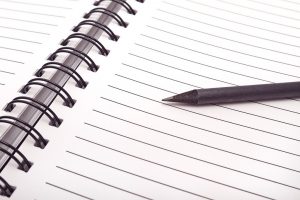
There are a number of reasons why people may choose to keep a log of what they eat: they may be counting calories to lose weight, diabetics have to watch their sugar levels which includes monitoring their carbohydrate intake, athletes who keep track of their food in relation to their sporting performances, and so on.
I have been through bouts of keeping a food diary in the past, but that was mainly during my short-term “crash” diets where my only goal was to lose weight… fast. At present, I am logging my food using MyFitnessPal, and my reasons for doing so are as follows:
- It helps me to keep track of my calories as I am trying to lose a few more pounds and lower my body fat percentage.
- I also pay attention to my macros (the breakdown of my calorie intake into Carbohydrates, Proteins and Fats) so that I can try and up my protein intake to prevent muscle loss whilst dieting.
- I’m currently keeping an eye on my sodium and sugar intake as I’m trying to eat cleaner and minimize processed foods.
- It helps me analyse why my running may be suffering from inconsistencies. Some days I can run for 60 minutes non-stop and feel pretty good, then another day I struggle to reach the 10 minute mark at the same pace; keeping a log of my food allows me to see what food gives me energy and what may be causing any issues, such as lack of water on one day, or eating carbohydrates too late at night.
- I recently spoke with a personal trainer who went over my goals with me and also asked that I keep a log of my food so that he could take a look.
As you can see, I have a number of reasons for keeping track of my food, but does that mean that you should keep a food log? I would say that if any of the following apply to you, then yes, you could benefit from logging your food:
- Dieting / weight loss / health – if you are trying to lose weight then logging your food can really keep you accountable. Using a website such as MyFitnessPal will also make you realize exactly what is in your food and could steer you to more nutritious options. It’s not just good for counting calories though, it can be beneficial to those who are looking to lower their sodium or sugar intake; if you are susceptible to or have diabetes then keeping an eye on sugar and carbohydrates is important.
- Have specific macro goals – if you are following a diet plan which wants you to eat certain macros, for example, 40% of your calories from carbohydrates, 30% from protein and 30% from fat, then food logging will help you to ensure that your meals are balanced and you are hitting your macro goals.
- Suffer from inconsistent training – if you are struggling with inconsistencies in your training program, such as lack of energy on certain days, or longer recovery times, then logging your food may help you to find the source of the problem. A training log would also be recommended here, so that you can look at your workouts and analyse them; perhaps you are pushing too hard in too many sessions and over-training, or maybe your training is becoming stagnated and needs a mix up.
- You are planning on getting PT sessions – if you are looking at working with a personal trainer then they will more than likely ask for a food log to see if they can give you any nutritional advice based on your goals.
Since I started keeping a food log, it has really opened my eyes to a number of things, such as portion sizes and what is really in my “go-to” foods. I bought a set of digital kitchen scales and now weigh almost everything that I prepare; I also use them to check my portion sizes – especially for rice, pasta and breakfast cereal. When I can see what I am eating and look at the nutritional profile of it, it makes me less likely to binge on junk, especially if I have had a good gym or running session earlier in the day; I don’t want to undo my progress!



